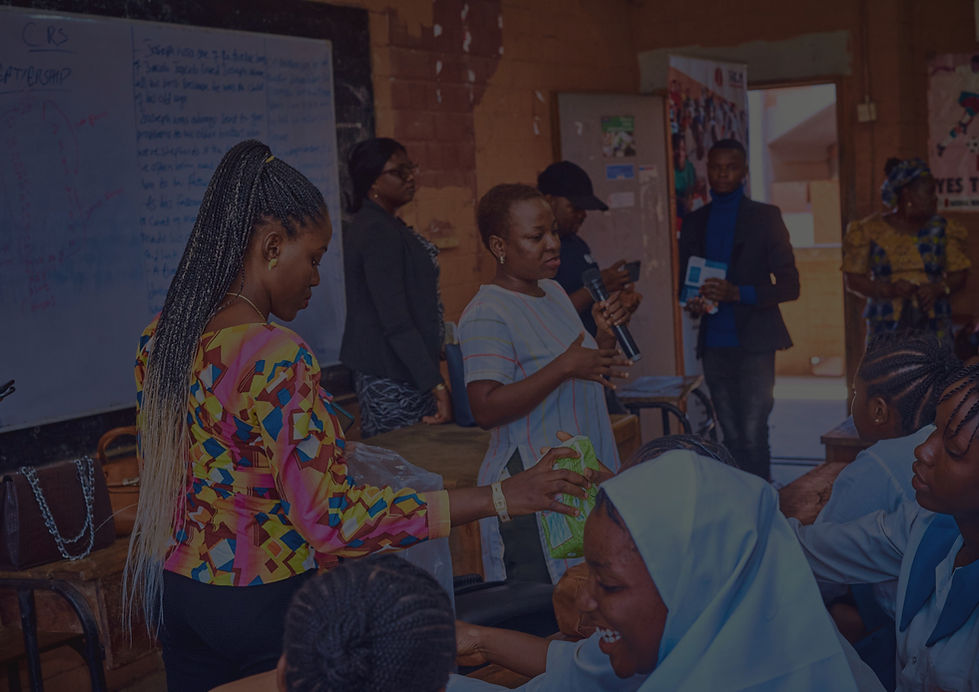Yerima, a former governor and senator, allegedly married an Egyptian child in 2009 by paying $100,000 in dowry. Thirteen years later, in 2022, he sought to run for president under the incumbent party in the largest democracy in Africa. When questioned about his past actions on Channels Television’s Politics Today, he defended himself, claiming he had done nothing wrong.[1]
In May 2024, a planned mass wedding involving about 100 orphans, including allegedly underage girls, was being organized in Niger State.[2] Reports indicated that the mass wedding was initially supported by the Speaker of the Niger State Assembly, Abdulmalik Sarkin-Daji, after being approached by local religious leaders for financial assistance.[3] However, Nigeria’s Women’s Affairs Minister, Uju Kennedy-Ohanenye, announced that she had filed a court order to stop the ceremony.[4] These contrasting actions by Yerima, Sarkin-Daji, and Kennedy-Ohanenye reflect a broader societal issue in Nigeria: the prevalence of child brides and the deep disagreements over fundamental human rights principles within the country’s pluralistic legal system.
According to HRW, “Nigeria’s rates of child marriage are some of the highest on the African continent.”[5] In 2023, Kennedy-Ohanenye outlined that “With a population of more than 218 million people, Nigeria is home to 23 million child brides, with two in every five women married as children.” [6]A government report further noted that 48% of Nigerian women marry before age 15, while 78% marry before age 18. Despite the enactment of the Child Rights Act (CRA) nearly two decades ago, its enforcement remains weak. Mausi Segun, director of HRW, described the situation as “disturbing,” emphasizing that many Nigerian girls continue to be forced into marriage.
These marriages often have significant power imbalances, with studies showing that the average age difference between husband and wife is 12 years when the wife marries before 15. Many analysts, including Braimah, argue that child marriage is most prevalent in northern Nigeria due to the influence of Sharia law.[7] The northern region has a disproportionately high rate of child marriage, with states like Bauchi reporting staggering numbers.[8] In Bauchi, 73.8% of women aged 20-24 were married before turning 18, while the figures stood at 52% and 51.1% in other northern states. However, child marriage is not exclusive to the North. HRW’s investigation into the experiences of 16 married girls from Kano (North) and Imo (South) found that both regions struggle with weak law enforcement.[9]
While some northern states have domesticated the CRA, amendments accommodate Islamic perspectives, such as recognizing puberty rather than age 18 as the minimum marriage age.[10] Meanwhile, Imo State, despite adopting the CRA with a marriage age of 18, still faces challenges due to customary laws. This reveals that child marriage is not just a northern issue but a national problem driven by a blend of religious and traditional legal systems.
Addressing child marriage in Nigeria requires a multi-faceted approach, integrating legal reforms, grassroots advocacy, and cultural shifts. Without stronger enforcement and widespread societal change, millions of Nigerian girls will remain vulnerable to early and forced marriages, perpetuating cycles of poverty and gender inequality.
Reference
[1] Channels Television. “No Nigerian Law Determines How You Get Married – Yerima Speaks on Child Marriage.” Channels Television, May 10 2022. https://www.channelstv.com/2022/05/10/no-nigerian-law-determines-how-you-get-married-yerima-speaks-on-child-marriage/
[2] BBC News. “Nigerian Minister Seeks to Stop Mass Wedding of Girls.” BBC News, May 22, 2024. https://www.bbc.com/news/articles/c3gqvzql9ylo.
[3] Punch Newspapers. “Niger Speaker Backtracks on Orphans Mass Weddings After FG Pressure.” Punch Nigeria, April 21, 2024. https://punchng.com/niger-speaker-backtracks-on-orphans-mass-weddings-after-fg-pressure/.
[4] Otuchikere, Chika. “Niger Speaker Backtracks on Orphans Mass Weddings After FG Pressure.” Punch Newspapers, May 15, 2024. https://punchng.com/niger-speaker-backtracks-on-orphans-mass-weddings-after-fg-pressure/.
[5] Human Rights Watch. “Nigeria: Child Marriage Violates Girls’ Rights.” Human Rights Watch, January 17, 2022. https://www.hrw.org/news/2022/01/17/nigeria-child-marriage-violates-girls-rights.
[6] Ewepu, Gabriel. “Nigeria Has 23 Million Child Brides – SCI.” Vanguard News, October 27, 2023. https://www.vanguardngr.com/2023/10/nigeria-has-23-million-child-brides-sci-reports/.​:contentReference[oaicite:0]{index=0}
[7] Braimah, T. S. (2020). Child marriage in Northern Nigeria: Section 61 of Part I of the 1999 Constitution and its implication for girl-child education. Nigerian Journal of Public Law, 18(2), 125–138.
[8] Girls Not Brides. “Nigeria.” Child Marriage Atlas. Accessed April 21, 2025. https://www.girlsnotbrides.org/learning-resources/child-marriage-atlas/atlas/nigeria/.
[9] Human Rights Watch. “Nigeria: Child Marriage Violates Girls’ Rights.” Human Rights Watch, January 17, 2022. https://www.hrw.org/news/2022/01/17/nigeria-child-marriage-violates-girls-rights.
[10] Ogunleye, Olamide. “Jigawa Assembly Passes Child Rights Bill, Expunges Age Limit for Marriage.” Premium Times, December 21, 2021. https://www.premiumtimesng.com/regional/nwest/501952-jigawa-assembly-passes-child-rights-bill-expunges-age-limit-for-marriage.html?tztc=1.
Written by Ayobami Olufemi-White



